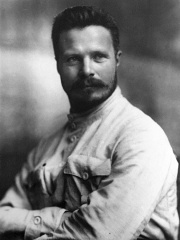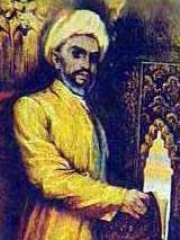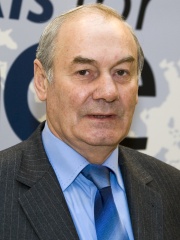


The Most Famous
MILITARY PERSONNELS from Kyrgyzstan
This page contains a list of the greatest Kirghiz Military Personnels. The pantheon dataset contains 2,058 Military Personnels, 3 of which were born in Kyrgyzstan. This makes Kyrgyzstan the birth place of the 61st most number of Military Personnels behind Sri Lanka, and Algeria.
Top 3
The following people are considered by Pantheon to be the most legendary Kirghiz Military Personnels of all time. This list of famous Kirghiz Military Personnels is sorted by HPI (Historical Popularity Index), a metric that aggregates information on a biography's online popularity.

1. Mikhail Frunze (1885 - 1925)
With an HPI of 72.29, Mikhail Frunze is the most famous Kirghiz Military Personnel. His biography has been translated into 54 different languages on wikipedia.
Mikhail Vasilyevich Frunze (Russian: Михаил Васильевич Фрунзе; Romanian: Mihail Frunză; 2 February 1885 – 31 October 1925) was a Soviet revolutionary, politician, army officer and military theorist. Born to a Romanian father and a Russian mother in Russian Turkestan, Frunze attended the Saint Petersburg Polytechnical University and became an active member of the Russian Social Democratic Labour Party (RSDLP). Following the RSDLP ideological split, he sided with Vladimir Lenin's Bolshevik faction. He led the textile workers strike in Ivanovo during the 1905 Russian Revolution, for which he was later sentenced to death before being commuted to life-long hard labour in Siberia. He escaped ten years later and took active part in the 1917 February Revolution in Minsk and the October Revolution in Moscow. Frunze distinguished himself as one of the most successful Red Army commanders during the Russian Civil War, achieving major victories over the White Army of Pyotr Wrangel in Crimea and Nestor Makhno's anarchist movement in Ukraine. In 1921, Frunze was elected to the Central Committee of the Communist Party. In 1925, he was named chairman of the Revolutionary Military Council. Frunze died in 1925 from chloroform poisoning during surgery for a chronic ulcer. It has been alleged that Frunze was assassinated by Joseph Stalin, who arranged the surgery. He was buried in the Kremlin Wall Necropolis. The capital of the Kirghiz SSR and his birthplace, Pishpek (modern Bishkek), was renamed after him from 1926 until 1991. The Frunze Military Academy, one of the most prestigious military educational institutions in the Soviet Union, was also named in his honour.

2. Yūsuf Balasaguni (1020 - 1075)
With an HPI of 71.87, Yūsuf Balasaguni is the 2nd most famous Kirghiz Military Personnel. His biography has been translated into 28 different languages.
Yusuf Khass Hajib was an 11th-century Central Asian Turkic poet, statesman, vizier, Maturidi theologian and philosopher from the city of Balasaghun, the capital of the Kara-Khanid Khanate in modern-day Kyrgyzstan. He wrote the Kutadgu Bilig and most of what is known about him, comes from his own writings in this work. He is mostly referred to as Yūsuf Balasaguni, derived from his city of origin.

3. Leonid Ivashov (b. 1943)
With an HPI of 56.41, Leonid Ivashov is the 3rd most famous Kirghiz Military Personnel. His biography has been translated into 17 different languages.
Leonid Grigoryevich Ivashov (Russian: Леонид Григорьевич Ивашов; born 31 August 1943) is a Russian military and public official. He is a former President of the Academy for Geopolitical Problems and a retired colonel general. In January 2022, as the head of the All-Russian Officers Assembly, he published a statement condemning Putin's "criminal policy of provoking a war" during the 2021–2022 Russo-Ukrainian crisis and calling for President Vladimir Putin's resignation.
People
Pantheon has 3 people classified as Kirghiz military personnels born between 1020 and 1943. Of these 3, 1 (33.33%) of them are still alive today. The most famous living Kirghiz military personnels include Leonid Ivashov. The most famous deceased Kirghiz military personnels include Mikhail Frunze, and Yūsuf Balasaguni.

